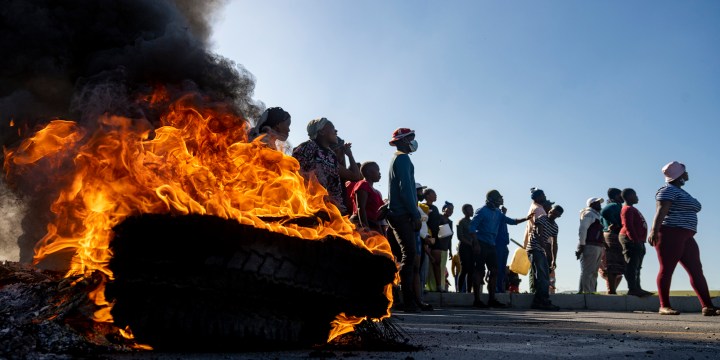THOUGHT LEADER WEBINAR
Local government elections: South Africa must go back to basics to build a capable state

Malevolent politics has crippled local government and, so far, local elections have not proved to be effective as service delivery disasters, party politics and financial failures continue at municipalities. This was the view of panellists at a University of the Free State webinar ahead of October’s municipal elections.
“Elections are supposed to bring better, more accountable governments into place. At a local government level, that, so far, has not happened,” said Susan Booysen, director of research at the Mapungubwe Institute for Strategic Reflection, during a Thought Leader webinar held by the University of the Free State (UFS).
The webinar, with the theme, South African politics and the local government elections: Scene setter for a capable state?, was held with local government elections just four months away.
The elections will be contested at a time when the three biggest political parties in the country are embroiled in their own scandals and crises. It’s also a time when service delivery protests show no signs of tailing off.
The panellists agreed that most municipalities were not contributing towards the creation of a capable state.
Ebrahim Fakir, programmes director at the Auwal Socio-Economic Research Institute, said that local government is instead giving rise to a much more “predatory state”, describing the state of local governance as “bleak”.
According to Booysen, about 66% of the country’s 257 municipalities are in financial distress and about 40% are surviving on unfunded budgets, while only 10% of councils are managing to get a clean audit. Municipal governance in provinces like North West and the Free State have collapsed, he said, due to financial and service delivery failures.
The problems in local government are not unknown and there is consensus on what they are, Booysen pointed out.
She listed a few: an “extensive” disregard for rules, procedures, procurement, the collecting of revenue and creditors not being paid.
“Very importantly, about 46% of those central government transfers and grants that go to local government are known to be funnelled into salaries for officials and councillors rather than being spent on those essential services that are meant to take place in municipalities,” Booysen said.
“The problems of financial management, administrative capacity and skills that are simply not present… about corruption that interferes in that process”, are well known, she said.
A post-political fact
According to Fakir, the type of politics prevalent in society will largely determine the nature of future governments.
“Government and governance is a post-political fact,” said Fakir.
According to him, it is possible to have bad politics and still have decent government for a period, but that is premised on the presence of robust institutions and processes and proceedings, by which decisions are made and resources are allocated.
But he said South African society is too fragile; it cannot withstand its bad politics.
“We are only 20 years into the local government transition,” said Fakir. “Our institutions are not robust enough, our processes are not robust enough, and therefore they have both been available for malevolent state capture or corruption.”
Bad politics has indeed infiltrated local government and it would significantly impact how successfully the local elections played out, added Prof Sethulego Matebesi, academic head of the sociology department at UFS.
“If we agree that problems in local government that lead to poor performance are caused by political, and not administrative, leadership… If we agree that challenges of political leadership can partly be ascribed to the dominance of internal party politics… then I believe the 2021 local government elections will not effect the (necessary) changes and produce a strong local government capable of fulfilling its constitutional mandate,” Matebesi said.
Towards a capable state
Building a capable state would mean going back to basics, said Fakir.
“I would like to see a local government trying to carry out its basic functions,” he said. “If a reservoir breaks, I expect someone to go and fix the valves and the pumps.”
Fakir added that a capable state would have five measures in place:
- A strong regulatory capacity – the ability to make laws and policies, which are prudent and fit the circumstances of the society.
- A technical capacity – the ability to technically maintain and build the infrastructure to do the necessary activities, which are required to make a society functional and facilitate its social and economic activity.
- An administrative capacity – the ability to execute and implement strong oversight.
- An extractive capacity – the ability to raise taxes, revenues, rates, so that there is funding for the things that need to happen at the level of local government.
- A coercive capacity – the ability to ensure that there is compliance with rules.
“In each one of these five measures you will find that local government, and government in general, has been lacking,” said Fakir.
“If you have bad and malevolent politics, and you have bad ethics in society, then the ability of these five measures of a capable state suddenly starts to wither away, and you have a weak state.” DM




















 Become an Insider
Become an Insider
I think it is worth mentioning that the overwhelming majority of issues are squarely and clearly due to the ANC.